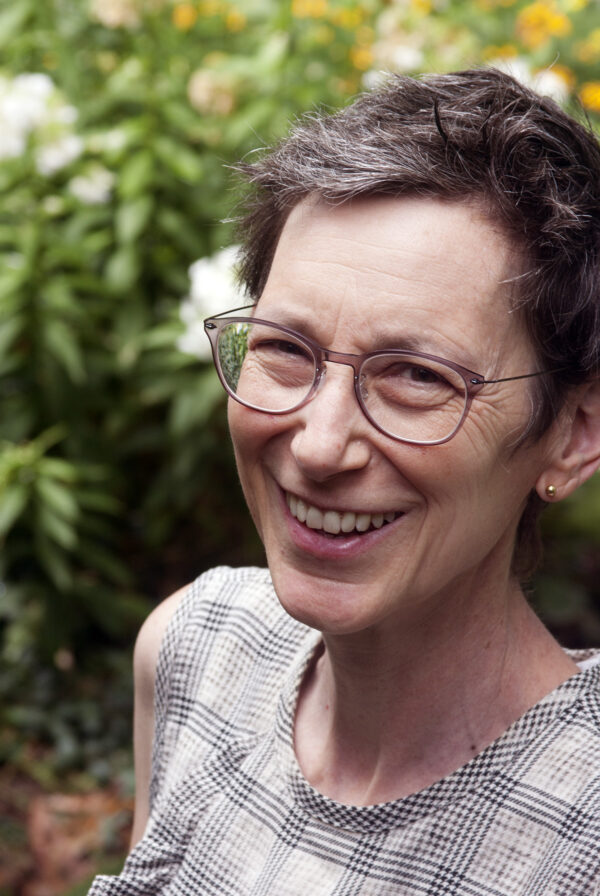Jane Wolff is an associate professor at the University of Toronto’s Daniels Faculty of Architecture, Landscape, and Design. Her current research concerns the metropolitan landscapes of Toronto; previous publications include Delta Primer: A Field Guide to the California Delta, the web resource Gutter to Gulf (co-authors: Elise Shelley and Derek Hoeferlin), and the edited volume Landscape Citizenships (co-editors: Tim Waterman and Ed Wall). Her new book is Bay Lexicon, published by McGill-Queen’s University Press.
See Jane discuss Bay Lexicon with special guest Susan Schwartzenberg in our City Lights LIVE virtual events series on Wednesday, October 6, 2021.
Where are you writing to us from?
Toronto.
What’s kept you sane during the pandemic?
I’ve taken a lot of walks. And I’ve also been greatly helped by spy novels, gardening, good friends, the antics of the neighborhood squirrels, and the seasonal opening of the swimming pool.
What books are you reading right now? Which books do you return to?
As part of my Keeping Sane during the Pandemic project, I spent the better part of a year reading everything by John le Carré (in order), and then I started on the Maigret novels. I’ve also been reading (and recommending) Robin Wall Kimmerer’s Braiding Sweetgrass. Next on my list: The Truth about Stories: A Native Narrative by Thomas King.
Two books I’ve returned to over years and years: The Rings of Saturn by W. G. Sebald, which I love for its meditation on time, memory, and the power of artifacts, and Shallow Water Dictionary by John Stilgoe, which I love for its commitment to a particular place and the particular words it’s given rise to.
Which writers, artists, and others influence your work in general, and this book, specifically?
My influences have come from wildly different directions (and this isn’t a comprehensive list!). Chris Marker and Walker Evans helped me to see how images in series could tell a documentary story. Dutch botanical illustrations and Diderot’s Encyclopedia taught me a great deal about drawing. Aldo Leopold, John McPhee, and Anne Whiston Spirn had a big impact on my understanding of the relationships between people and the more-than-human world.
Bay Lexicon owes a special debt to two books: Raymond Williams’s Keywords: A Vocabulary of Culture and Society, which looks at the complicated meanings of words that are usually taken for granted, and Peterson First Guide to the Birds, which offers readers visual tools to recognize and make sense of patterns in the environment.
If you opened a bookstore, where would it be located, what would it be called, and what would your bestseller be?
It would be in my neighborhood so I could walk to work. It would be called Jane’s Books, and we would also serve coffee. I’d like it to be the kind of place where people come to bump into each other. The bestseller would change all the time, but today it would be View with a Grain of Sand by Wisława Szymborska.

